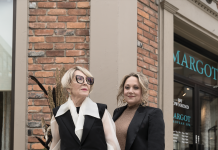
The difficult experience of this past year has undeniably changed us. Some changes we’ve already integrated into our lives, like our ability to live so much of our lives online. Some change is still hypothetical. Our projected gratitude for the small, missed things that we’ve promised never to take for granted again is not a given. Will we actually be able to set our intention and retain a sense of wonder, or will we quickly acclimate to dinners out, crowded music venues, and hugs? We don’t know. Other changes are opaque to us and will surface later, in sometimes unexpected ways.
A few years ago, I was on a beach in San Diego with my young son playing in the sand when my phone rang. It was one of those calls that stops time. A friend and fellow physician had been struck by a car when she stopped to help at the scene of an accident. It was immediately clear she was not going to survive her injuries. As I made calls to expand the circle of who knew and consoled those closest to her, my son hummed to himself, seemingly unaware of my sadness. When I redirected my attention to him, I could see that he had built something.
“What’s that?” I asked.
“I made you a cemetery,” he answered. “This grave is for your dad, and this one is for my sister who died in your belly, and this one can be for your friend. She’s dying too, and Mama’s sad.”
In that moment, surrounded by children building the customary sandcastles and mermaids, my son had instead crafted small graves complete with rocks for headstones. My immediate first thought was, “Well, I’ve clearly broken him,” and I half wondered if he had a reset button. All I wanted to do was turn around, to go back to a time when he didn’t know death.
As a critical care physician, I was endlessly bringing home the heartbreak of the hospital, but I had also spent a good part of his life writing and telling the story of my own near death and lengthy critical illness. By raising him in an environment that actively discussed sickness, pain, and death, I felt that I had practically curated his loss of innocence. Should I have navigated it all differently?
I know now that much of it was entirely unavoidable. I couldn’t have protected him from an early awareness of mortality any more than we could have shielded ourselves from the pain of the last year. The pandemic has brought a loss of innocence at scale. We now know the ways in which the system is set up to fail the most vulnerable. Every statistic broadcast on the news is a lesson in inequality. Anyone who searched for a testing site experienced the very real impact of deprioritizing public health. We have a newfound communal awareness, and this is a starting point from which we can begin again. This period between the terrible wounding damage and when the scar inevitably forms and pain becomes memory is a time when we can actively examine and rebuild ourselves.
We’ve been wounded, and as I’ve learned, our injuries offer us a window, provided we are willing to look. Any wisdom that the wound offers is entirely dependent on how we regard it. Look too closely at our own losses and we risk blocking out our view of the suffering of others. Widen the lens and, with expansive empathy, we feel the suffering of others as viscerally as our own. We may even see the ways in which we have contributed to the suffering of others.
It’s hard work, acknowledging the trauma, the ways in which it has been revealed and changed us. We each know the tally of this past year’s losses intimately; we know the weight of our suffering as individuals and communities. But (and this is important) we are not our pain. There is something powerful in acknowledging that we are separate from our pain. That while our experiences shape us, we have agency in our own healing, as individuals, as families, as communities, and even as a city. We get to decide the form of our own scar, how we will use this experience to better serve others, and, ultimately, how to transform it into something meaningful.
After that trip to California, I rather predictably got sick again and required emergent surgery. Afterward, my still-young son approached the edge of my bed and quietly waited for me to open my eyes. When I did, he asked how much space my pain was taking up. “Is your pain small, like the size of a quarter where they cut you, or is it so big it’s taking up the whole room?”
In that moment, I saw that he had metabolized the pain I had exposed him to into a kind of empathy that understood the complex nature of suffering. I saw how the three-dimensional pain scale he had intuited was an improvement on medicine’s flat, conventional 1-10 pain scale. It was then that I no longer feared allowing him proximity to pain, because I understood that what he could potentially gain was transformative.
May the same be true for each of us. May we metabolize our pain and use it to soften our hearts, transform our communities, and invest in our vision of what is possible. May we surprise ourselves with the sense of wonder and gratitude we manage to retain, and with our commitment to carrying forward the wisdom of this wound.
Dr. Rana Awdish is a pulmonary and critical care physician at Henry Ford Health System in Detroit. One of Hour Detroit’s 2020 Top Docs, she also serves as the medical director of care experience for the Health System. She is the author of the critically acclaimed memoir In Shock: My Journey from Death to Recovery and the Redemptive Power of Hope.
|
|
|









